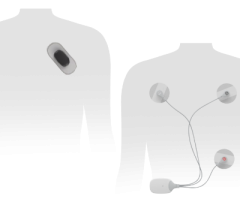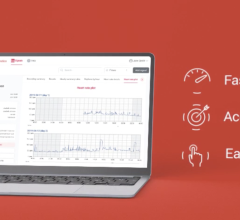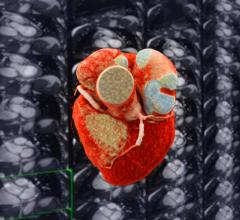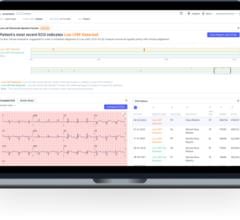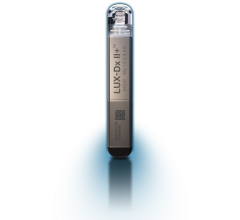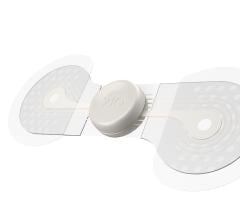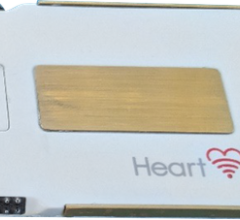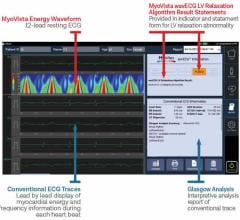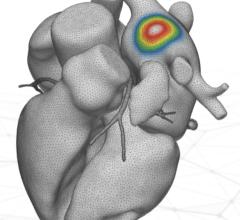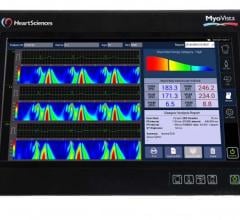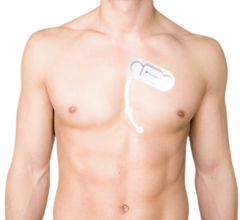October 23, 2023 — Investigators from the Smidt Heart Institute at Cedars-Sinai found that an artificial intelligence (A ...
Cardiac Diagnostics
This channel includes news, videos, podcasts and other content on new technology innovations for cardiac diagnostic systems and techniques. This includes laboratory testing, blood tests including troponin testing, electrocardiogram (ECG) systems, point of care testing systems, genetic testing, cardiac patient monitoring devices including wearable sensors, and studies showing new ways to diagnose heart diseases.
October 16, 2023 — A door-to-balloon (D2B) time of 90-minutes or less is associated with improved outcomes for heart ...
October 13, 2023 — InfoBionic, Inc. today announced that it received 510(k) clearance from the U.S. Food and Drug ...
Cardiac PET/CT represents a major advancement in cardiovascular diagnostics, offering significant clinical and ...
October 13, 2023 — The newly MDR-certified Cardiomatics solution is accurate, fast and easy-to-use AI-based standalone ...

October 11, 2023 — To gain the latest insight into genetic research for the treatment of hypertrophic cardiomyopathy ...
October 10, 2023 — Hawthorne Effect, a complete clinical trials solution, announced interim recruitment results for the ...
When the patients of Michael Boler, M.D. need cardiac monitoring, the Holter monitor is no longer his first choice. “The ...
October 5, 2023 — Mayo Clinic researchers have developed a calculation that can help identify moderate aortic stenosis p ...
October 4, 2023 — Anumana, Inc., a leading AI-driven health technology and nference portfolio company working in ...
October 3, 2023 -- Boston Scientific launched the LUX-Dx II+ Insertable Cardiac Monitor (ICM) System, a next-generation ...
When the patients of Michael Boler, M.D. need cardiac monitoring, the Holter monitor is no longer his first choice. “The newer ECG devices we have now are so much less cumbersome. It’s like wearing a Band-Aid versus carrying a bulky device,” said the Greenwood, Mississippi internist. “My patients prefer the more comfortable, wire-free form factor, and the quality is as good as, or better, than the Holter,” continued Boler. “Plus, my patient compliance has increased. With the Holter, the leads sometimes come off. The patient may think the device isn’t working, so they take it off and we have to restart the process.”
September 27, 2023 — iRhythm Technologies, Inc. announced the U.S. launch of its next-generation Zio monitor and ...
September 27, 2023 — HeartBeam, Inc., a Santa Clara, CA-based cardiac technology company, has appointed Richa Gujarati ...
September 26, 2023 — Heart Test Laboratories, Inc., an AI-powered medical technology company focused on transforming EC ...
Sudden cardiac death (SCD) is the leading medical cause of death in young athletes and its impact is consistent worldwide. Most professional athletes in the United States are required to take part in comprehensive cardiovascular screening programs to identify often-asymptomatic congenital or inherited heart disorders, and other cardiac risk factors. There remains a debate however, whether to mandate ECGs as part of pre-participation screening programs for student athletes at the collegiate and high school levels or even at younger ages.
September 21, 2023 — Vektor Medical, developers of the only FDA-cleared technology to accurately map arrhythmias using ...
September 21, 2023 — Heart Test Laboratories, Inc., an AI-powered medical technology company focused on transforming ECG ...
September 19, 2023 — SmartCardia has received FDA clearance for its 7-lead real-time ECG monitoring patch and cloud ...


 October 23, 2023
October 23, 2023

